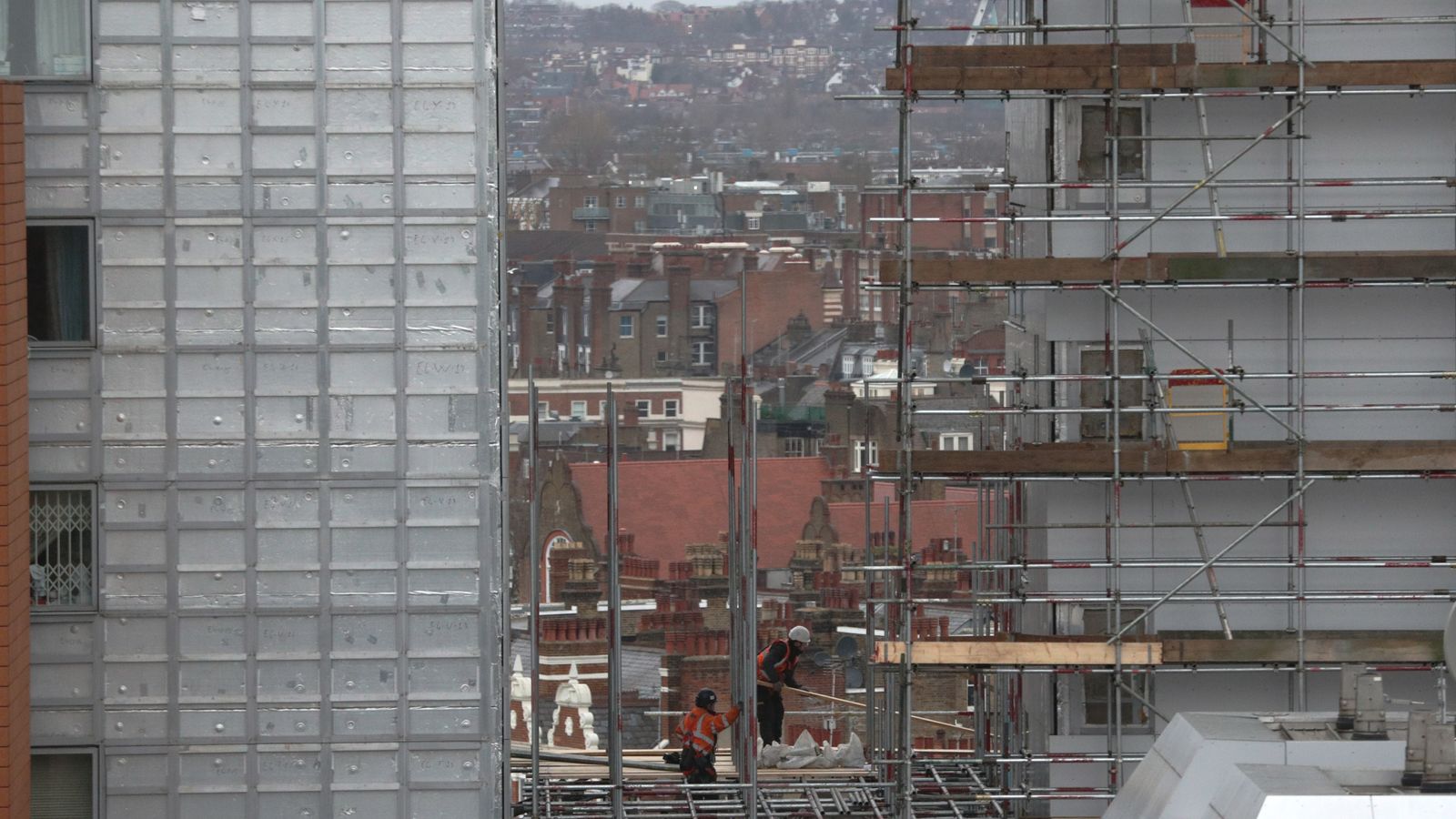One of the City’s leading investors has urged Britain’s housebuilders to go beyond their legal duties and fund decades-worth of repair work to buildings affected by the cladding crisis.
Sky News has learnt that abrdn, the FTSE-100 asset manager, has written to listed companies including Barratt Developments and Persimmon to encourage them to ease the financial cost for leaseholders who have been left unable to sell their properties.
In its letter to the industry’s biggest players, abrdn said it wanted them to “carefully consider providing additional financing for all affected buildings built by [you] in the last 30 years, regardless of their height or current ownership, in order to accelerate remediation work to remove the burden on leaseholders”.
“While this may extend well beyond the company’s legal responsibilities, we believe it would demonstrate a positive approach to comprehensively addressing any interpretation of the company’s moral responsibilities as well”.
Spring statement: The key points in Chancellor Rishi Sunak’s statement to MPs
National insurance threshold raised and fuel duty cut by Rishi Sunak in spring statement
Fuel duty: Why chancellor’s ‘5p-a-litre cut’ is unlikely to be reflected at the pumps this week
The intervention from abrdn adds to the pressure on housebuilders which has been stoked in recent months by Michael Gove, the levelling-up and housing secretary.
Mr Gove wants the industry to foot a bill that his department says would amount to £4bn in order to remediate properties affected by the cladding crisis, which was thrown into tragic focus by the Grenfell Tower disaster in west London in 2017.
Last week, he told a Conservative forum that the industry was akin to “a cartel” that is responsible for “all sorts of unhappy consequences”.
His remarks sparked fury from the industry, with the Home Builders Federation (HBF) saying it was “extremely worrying to hear a senior member of the government speaking so disparagingly about an industry responsible for maintaining around 800,000 jobs, generating around £40bn in economic activity annually and contributing around £7bn per year in wider community and infrastructure benefits”.
Industry sources told Sky News that the HBF and its members would hold further talks on Thursday to discuss their joint approach to the cladding liabilities.
A paper commissioned from PricewaterhouseCoopers, the professional services firm, is understood to have concluded that the total bill should amount to less than £1bn, with the UK housebuilders arguing that overseas housebuilders and the cladding manufacturing themselves must be made to shoulder part of the burden.
One industry insider estimated that the eventual bill for the sector was likely to fall “midway” between the housebuilders’ initial proposal and Mr Gove’s £4bn demand.
In abrdn’s letter to major housebuilders, it also called for the companies to show more transparency on their approach to cladding remediation.
This, it said, “should assist in demonstrating the remediation actions being taken by companies, while also supporting the investment community in understanding how individual companies are managing their exposure to these issues”.
One fund management executive said abrdn’s push for the housebuilders to go beyond their legal obligations to fund remediations underlined the growing push for companies to fulfil their social contract in order to improve their reputations, even where it might incur an immediate financial cost.






















